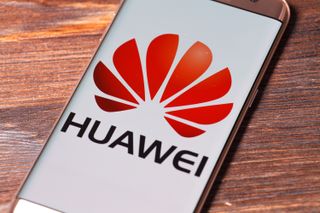Huawei's Mobile OS Never Says Die

Huawei's mobile operating system (OS), named Hongmeng, is starting to seem like Apple laptop's new keyboard mechanism: there have been a lot of reports about it, and there are plenty of reasons why the company would develop it, but it still has yet to make its way into an official product. That might change later this year, however, with Chinese state media reporting that Huawei could release a smartphone running Hongmeng as early as this December.
The switch to Hongmeng would follow Google's decision to prevent Huawei from using certain aspects of Android--such as the Google Play Store and Google's applications--after the company was blacklisted by the U.S. Department of Commerce in May. Huawei could technically still use Android because it's partly open source, but many Android users are probably accustomed to having easy access to Google's services on the platform.
Huawei could reportedly ditch Windows 10 in its laptops, too; although, it's not clear if the company would use Hongmeng to do so. That lack of clarity is actually Hongmeng's defining trait right now--even Huawei can't seem to decide what the platform is for. First it said it was ready to replace Android and Windows even though it didn't want to. Then, reports said Hongmeng could debut this year. And then Huawei said the platform won't replace Android.
The Global Times disputed that claim today in a report saying Huawei would announce Hongmeng during a developer conference on August 9. The company reportedly plans to release a smartphone featuring the new operating system in the fourth quarter of 2019 with a 2,000 yuan ($284) price tag.
Huawei's ambition reportedly won't stop there, either, with the Global Times citing an anonymous source, who claimed the company is building a platform:
"In addition to smartphones and industrial use, Huawei has greater plans for the HongMeng OS: to make it run on many platforms and facilitate IoT. The source disclosed that unlike the Android system, which is based on the Linux kernel, Huawei's idea of developing HongMeng is similar to Google's Fuchsia OS - based on a microkernel, can better accommodate artificial intelligence and can run on multiple platforms."
At this point we're going to treat Hongmeng like we're treating Apple's butterfly mechanism replacement. There's enough smoke to assume there's a fire, sure, but we also don't know when the company will finally confirm the blaze. That's especially true for Huawei, considering its status as the designated example of how the U.S. can target Chinese companies during the ongoing (and slowly escalating) trade war between the two countries.
Stay on the Cutting Edge
Join the experts who read Tom's Hardware for the inside track on enthusiast PC tech news — and have for over 25 years. We'll send breaking news and in-depth reviews of CPUs, GPUs, AI, maker hardware and more straight to your inbox.

Nathaniel Mott is a freelance news and features writer for Tom's Hardware US, covering breaking news, security, and the silliest aspects of the tech industry.
-
bit_user ReplyThe switch to Hongmeng would follow Google's decision to prevent Huawei from using certain aspects of Android--such as the Google Play Store and Google's applications--after the company was blacklisted by the U.S. Department of Commerce in May. Huawei could technically still use Android because it's partly open source, but many Android users are probably accustomed to having easy access to Google's services on the platform.
No, I don't think that's it.
Chinese users don't use Google's services, on Android (Google services are banned by the Chinese government). So, for phones targeted for sale inside China, there has to be another reason. I think it's more likely all the binary drivers and proprietary firmware in a modern smartphone.
Jumping to conclusions, Mott, as usual.
Most Popular

